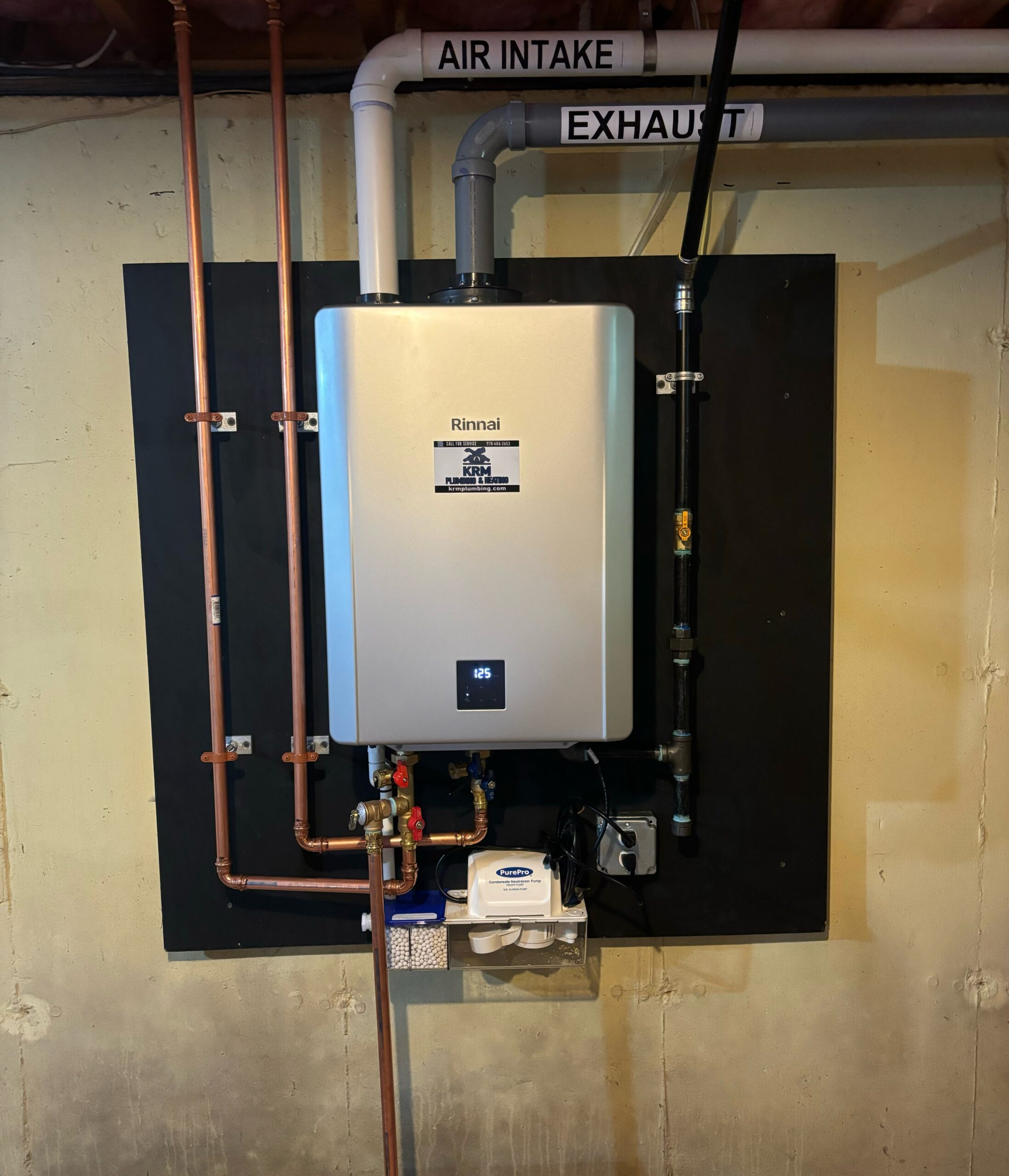Why Replace Your Hot Water Heater?
Hot water is essential in every home, from taking warm showers to washing dishes and doing laundry. If you’ve noticed inconsistent water temperatures, limited hot water supply, or skyrocketing energy bills, it might be time to replace your water heater. Traditional storage water heaters have a lifespan of about 8 to 12 years, and as they age, they become less efficient, requiring more energy to heat and store water.
Many homeowners replace their hot water heater due to breakdowns, inefficiency, or the desire to upgrade to a more energy-efficient system. If you’re in the market for a new unit, you have several options, including traditional storage tank heaters, electric water heaters, heat pump water heaters, and tankless models. Among these, a gas-fired tankless water heater stands out as one of the best choices for efficiency, convenience, and long-term savings.
What Are Your Options for Water Heaters?
When replacing your hot water heater, it’s important to weigh your options. Here are the most common types available:
- Traditional Storage Tank Water Heaters – These units store a set amount of water (typically 30-80 gallons) and keep it heated around the clock. While they are common and relatively affordable upfront, they consume more energy since they continuously heat water.
- Electric Water Heaters – Electric models are often easy to install and require no gas lines, making them a practical option for homes without natural gas. However, they generally have higher operating costs due to electricity prices and slower heating times.
- Heat Pump Water Heaters – These are highly energy-efficient as they transfer heat from the air into the water rather than generating heat directly. However, they require a significant amount of space and may not perform well in colder climates.
- Gas-Fired Tankless Water Heaters – Instead of storing hot water in a tank, these units heat water on demand, providing an endless supply of hot water. They are highly efficient, space-saving, and environmentally friendly, making them an excellent choice for modern households.
The Benefits of a Gas-Fired Tankless Water Heater
If you’re looking for the most efficient and cost-effective way to heat water in your home, a gas-fired tankless water heater is an outstanding choice. Here’s why:
1. Endless Hot Water Supply
One of the biggest advantages of a gas-fired tankless system is that it provides an unlimited supply of hot water. Traditional tank heaters can run out of hot water, especially during high-demand times like morning showers or laundry days. With a tankless unit, water is heated instantly as it flows through the system, so you’ll never have to worry about running out of hot water again.
2. Energy Efficiency and Cost Savings
Tankless water heaters only heat water when needed, significantly reducing energy consumption compared to traditional models that constantly heat a storage tank. According to the U.S. Department of Energy, gas-fired tankless water heaters can be up to 34% more energy-efficient than conventional water heaters for homes that use less than 41 gallons of hot water daily. This efficiency translates into lower utility bills, helping you save money in the long run.
3. Space-Saving Design
Storage tank water heaters take up a considerable amount of space in a home. In contrast, tankless units are compact and can be mounted on a wall, freeing up valuable floor space. This is especially beneficial for homes with limited space, such as apartments or smaller houses.
4. Longer Lifespan
Gas-fired tankless water heaters generally last longer than traditional tank models. While a conventional water heater may last 8 to 12 years, a tankless system can last up to 20 years or more with proper maintenance. This means fewer replacements and long-term savings.
5. Reduced Risk of Water Damage
Traditional water heaters can leak over time, causing potential water damage to your home. Since tankless systems do not store water, the risk of leaks and associated water damage is significantly reduced.
6. Eco-Friendly and Reduced Carbon Footprint
Gas-fired tankless water heaters use less energy, which means fewer greenhouse gas emissions. Additionally, since these units last longer, they contribute less waste to landfills compared to conventional water heaters that need frequent replacement.
7. Increased Home Value
Upgrading to a tankless water heater can increase the resale value of your home. Energy-efficient appliances are attractive to prospective buyers, and a gas-fired tankless system is a great selling point for modern, environmentally-conscious homebuyers.
Is a Gas-Fired Tankless Water Heater Right for You?
While gas-fired tankless water heaters offer numerous benefits, it’s essential to consider whether they are the right fit for your home. Here are a few factors to keep in mind:
- Initial Cost: Tankless units tend to have a higher upfront cost than traditional models, but their long-term energy savings and lifespan make them a worthwhile investment.
- Installation Requirements: Some homes may need upgraded gas lines or ventilation for installation. A professional assessment can help determine if modifications are needed.
- Household Hot Water Needs: While tankless systems provide continuous hot water, it’s important to select the right size unit based on your household’s hot water demand to ensure optimal performance.
Conclusion
A gas-fired tankless water heater is a smart investment for homeowners looking for a reliable, energy-efficient, and space-saving solution for their hot water needs. With benefits such as endless hot water, lower energy bills, longer lifespan, and reduced environmental impact, switching to a tankless system can improve both your daily comfort and long-term savings.
If you’re considering upgrading your hot water heater, reach out to us and we can help you make the best choice for your needs.


Leave a Reply